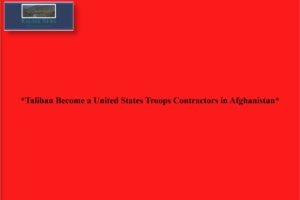The plight of Afghanistan has been a longstanding concern, and as the United States faces a shifting geopolitical landscape, there is an urgent need for the Republican party to take proactive measures in addressing the challenges facing this war-torn nation. Afghanistan, often referred to as the “Graveyard of Empires,” has been marred by decades of conflict, leaving its people in dire need of stability, security, and economic development.
To understand the gravity of the situation in Afghanistan, it is essential to delve into the historical context. The United States’ involvement in Afghanistan dates back to the late 20th century when the Soviet Union invaded in 1979. The U.S. supported Afghan resistance fighters, known as the Mujahideen, in their fight against the Soviet occupation.
The withdrawal of Soviet forces in 1989 marked the beginning of a power vacuum and subsequent internal strife.
The post-Soviet era witnessed the rise of the Taliban, an extremist group that took control of Afghanistan in the mid-1990s. The Taliban’s oppressive rule prompted international concern, leading to the U.S. invasion in 2001, following the 9/11 attacks. The subsequent years saw attempts at nation-building, but the challenges were formidable, and a resilient insurgency persisted.
As of 2024, Afghanistan continues to face multifaceted challenges, including political instability, a resurgent Taliban, economic hardships, and widespread poverty. The withdrawal of U.S. and NATO forces in 2021, while ending the longest war in U.S. history, left a security vacuum that the Afghan government struggled to fill. The Taliban regained control of significant territories, exacerbating the already fragile situation.
The Republican party, with its historical emphasis on national security, fiscal responsibility, and promoting democracy, has a crucial role to play in addressing the Afghan crisis. Here are key areas where Republican action can make a significant impact:
The Republican party should champion increased humanitarian aid to Afghanistan. This includes support for food, shelter, and medical assistance to mitigate the suffering of the Afghan people. The focus should be on collaborating with international organizations to ensure efficient and targeted aid delivery.
Republicans can advocate for robust diplomatic efforts to facilitate dialogue between the Afghan government, the Taliban, and regional stakeholders. A political solution is crucial for lasting stability, and the United States can play a pivotal role in fostering dialogue to achieve a comprehensive peace agreement.
Given the historical ties between Afghanistan and international terrorism, the Republican party should prioritize continued cooperation on counterterrorism efforts. This involves intelligence sharing, training Afghan security forces, and maintaining a vigilant stance against any resurgence of extremist groups.
Republicans, with their commitment to democratic values, should support initiatives that promote governance, human rights, and the rule of law in Afghanistan. This includes encouraging free and fair elections, supporting civil society organizations, and ensuring that the Afghan people have a voice in shaping their future.
The Republican party can advocate for economic assistance and investment in Afghanistan. By promoting economic development, job creation, and infrastructure projects, the U.S. can contribute to the long-term stability of the country. This may involve incentivizing American businesses to invest in Afghanistan, creating a win-win situation for both nations.
The Afghan call for assistance echoes loudly, and the Republican party, with its values and priorities, is well-positioned to address the challenges facing Afghanistan. By championing humanitarian aid, diplomatic engagement, counterterrorism cooperation, the promotion of democracy, and economic development, Republicans can contribute to a more stable and prosperous Afghanistan.
The United States has a moral obligation to stand by the Afghan people and ensure that the sacrifices made over decades do not go in vain. The Afghan call is not just a plea for help; it is an opportunity for the Republican party to demonstrate leadership on the global stage and uphold the principles that define the nation’s identity.





